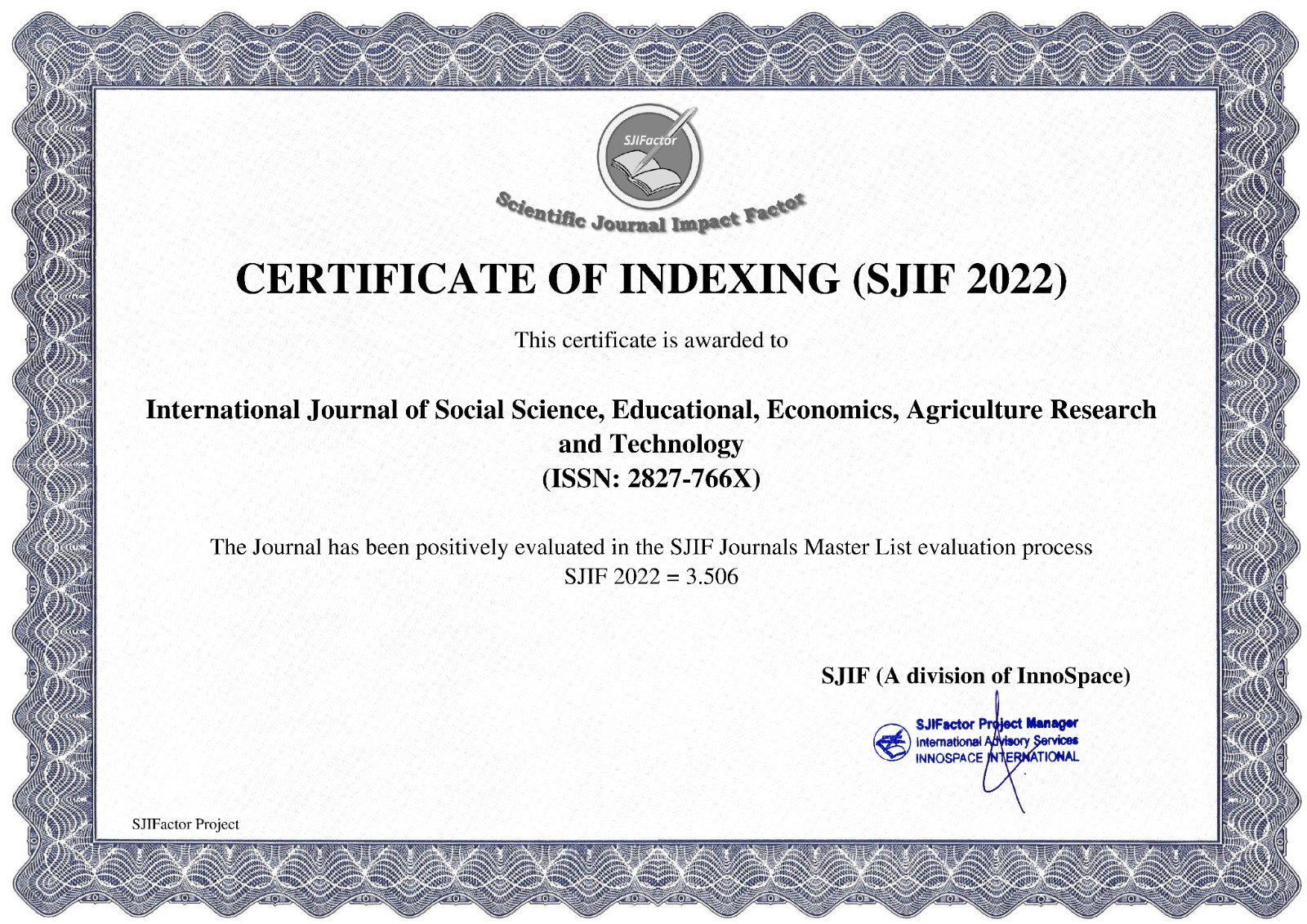THE RELATIONSHIP BETWEEN KNOWLEDGE ABOUT HIV/AIDS AND ADOLESCENT SEXUAL BEHAVIOR IN THE WORKING AREA OF PATI I PUBLIC HEALTH CENTER
Main Article Content
Yuli Yanti
Feri Catur Yuliani
Yeni Rusyani
Ratna
HIV/AIDS remains a global health problem, including in Indonesia, with a significant impact on adolescents as a high-risk group. Adequate knowledge about HIV/AIDS is expected to foster healthier sexual behaviors, thereby minimizing the risk of transmission. The increasing prevalence of risky sexual behavior among adolescents can contribute to high rates of HIV/AIDS transmission. to determine the relationship between the level of knowledge about HIV/AIDS and adolescent sexual behavior. This research is quantitative with a correlational design using a cross-sectional approach. The study population was adolescents aged 15–19 years in the Pati I Community Health Center working area, with a sample of 100 respondents selected using proportional random sampling. The research instrument was a questionnaire that had been tested for validity and reliability, including 10 questions for the HIV/AIDS knowledge variable and 10 questions for the sexual behavior variable. Data analysis was performed univariately to observe the frequency distribution and bivariately using the Spearman correlation test. showed that most respondents had a level of knowledge about HIV/AIDS in the category of less (49%), sufficient (28%), and good (23%). As many as 55% of respondents were classified as having risky sexual behavior, with forms of behavior varying from holding hands to penetrative sexual intercourse. The results of the bivariate test showed a significant relationship between the level of knowledge about HIV/AIDS and adolescent sexual behavior (p-value = 0.031) with a weak positive correlation (r = 0.215). Conclusion: There is a significant relationship with a positive direction between knowledge about HIV/AIDS and adolescent sexual behavior.
Afriyanti, D. & Wulandari, R., 2021, 'Adolescent sexual behavior and factors that influence it', Journal of Adolescent Health, 5(2), pp.45–53.
Anggraini, T., Susanti, E. & Ramadhani, R., 2022, 'The relationship between knowledge and attitudes towards adolescent sexual behavior in West Java', Jurnal Promkes, 10(1), pp.21–28.
CDC, 2023. HIV Basics. Centers for Disease Control and Prevention. [online] Available at: https://www.cdc.gov/hiv/basics [Accessed 1 Jun. 2025].
Creswell, JW, 2021. Educational research: Planning, conducting, and evaluating quantitative and qualitative research. 6th ed. Boston: Pearson.
Creswell, JW & Creswell, JD, 2020. Research design: Qualitative, quantitative, and mixed methods approaches. 5th ed. Thousand Oaks, CA: SAGE Publications.
Green, LW & Kreuter, MW, 2021. Health program planning: An educational and ecological approach. 5th ed. New York: McGraw-Hill.
Handayani, N., Suryani, E. & Prasetyo, A., 2021. Adolescent sexual education: A psychosocial study. Yogyakarta: Pustaka Pelajar.
IBM Corp., 2021. IBM SPSS Statistics for Windows, Version 28.0. Armonk, NY: IBM Corp.
Kebede, Y. et al., 2023, 'Sexual risk behaviors among adolescents in Ethiopia: A cross-sectional study', Ethiopian Journal of Health Development, 37(1), pp.15–24. Available at: https://doi.org/10.4314/ejhd.v37i1.3.
Ministry of Health of the Republic of Indonesia, 2022. National guidelines for HIV and AIDS management. Jakarta: Ministry of Health of the Republic of Indonesia.
Ministry of Health of the Republic of Indonesia, 2023. Indonesian Health Profile 2023. Jakarta: Ministry of Health of the Republic of Indonesia.
Molete, M. & Chola, L., 2022, 'Barriers to sexual and reproductive health education among adolescents in Sub-Saharan Africa', BMC Public Health, 22(1), pp.1–9. Available at: https://doi.org/10.1186/s12889-022-12345.
Nduka, I., Musa, E. & Okafor, C., 2022, 'Progression of HIV using ESSE classification', Journal of Infection and Public Health, 15(4), pp.302–310.
Notoatmodjo, S., 2020. Health promotion and health behavior. Jakarta: Rineka Cipta.
Notoatmodjo, S., 2023. Health education and behavior. Jakarta: Rineka Cipta.
Nsabimana, A., Uwase, J. & Habimana, S., 2021, 'Psychosocial impact of risky sexual behavior among adolescents in Rwanda', African Journal of Reproductive Health, 25(4), pp.89–97. Available at: https://doi.org/10.29063/ajrh2021/v25i4.10.
Pakpahan, Y., Sitorus, T. & Lestari, M., 2021. Fundamentals of Public Health Science. Medan: USU Press.
Peltzer, K., Pengpid, S. & Tepirou, C., 2021, 'Risky sexual behaviors among adolescents in Southeast Asia', Journal of Adolescent Health, 68(3), pp.570–576. Available at: https://doi.org/10.1016/j.jadohealth.2020.09.005.
Putri, A., 2020, 'The relationship between adolescent knowledge about HIV/AIDS and risky sexual behavior at SMA Negeri X Surabaya', Journal of Adolescent Health, 4(1), pp.12–18.
Putri, S., Handayani, R. & Syafitri, N., 2023, 'Characteristics and sexual behavior of adolescents in the digital era', Journal of Adolescent Psychology, 7(1), pp.32–40.
Rahman, M., 2021, 'Factors influencing adolescent attitudes towards HIV/AIDS in Semarang City', Journal of Public Health, 9(3), pp.55–64.
Santrock, JW, 2020. Adolescence. 17th ed. New York: McGraw-Hill Education.
Setiawan, D., Marlina, R. & Anindya, P., 2021, 'Knowledge and attitudes of adolescents towards HIV/AIDS', Journal of Community Nursing, 6(2), pp.50–58.
Sugiyono, 2021. Quantitative, qualitative, and R&D research methods. Bandung: Alfabeta.
Syafitri, L., 2022, 'The influence of HIV/AIDS education on the knowledge and attitudes of adolescents at State Vocational Schools in Bandung', Indonesian Journal of Health Promotion, 8(1), pp.77–84.
Syapitri, N., Rahmawati, L. & Handayani, S., 2021, 'How humans acquire knowledge', Journal of Behavioral Sciences and Psychology, 3(1), pp.10–17.
Swarjana, K., 2021. Health research methodology. Yogyakarta: Nuha Medika.
UNAIDS, 2023. Global AIDS update 2023. Geneva: UNAIDS.
UNESCO, 2022. International technical guidance on sexuality education. 2nd ed. Paris: UNESCO Publishing.
WHO, 2021. HIV/AIDS fact sheet. World Health Organization. [online] Available at: https://www.who.int/news-room/fact-sheets/detail/hiv-aids [Accessed 1 Jun. 2025].
WHO, 2022. Global health estimates: HIV/AIDS. Geneva: World Health Organization.
WHO, 2023. HIV prevention and adolescent health. Geneva: World Health Organization.
Yuliani, R., 2023, 'The role of social factors on adolescent sexual behavior in Indonesia', Journal of Social Sciences and Health, 9(2), pp.44–53.
Yuliana, D., 2023, 'Correlation study of HIV/AIDS knowledge and sexual behavior of students at University X Yogyakarta', Journal of Health Promotion, 11(1), pp.61–70.






















